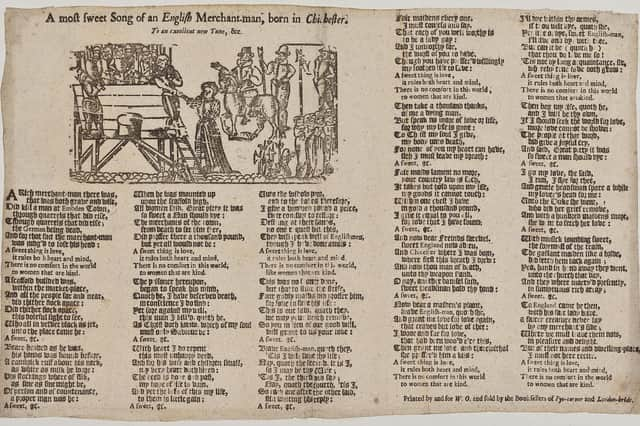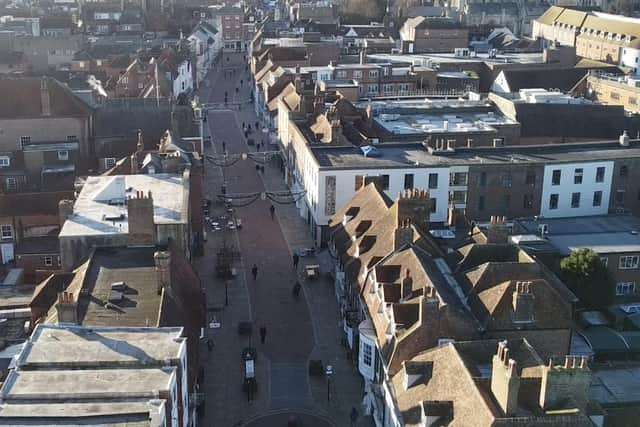‘Top of the pops’ charts for seventeenth century England features Chichester song


A song about Chichester has been featured in 100ballads.org's top of the pops’ style charts list for the seventeenth century. It all went live on 25th January. The song is called ‘a most sweet Song of an English Merchant, borne at Chichester’. It’s by Thomas Deloney and appears to have been a ‘hit from the moment of its first publication’, which is said to be in the early 1590s.
Christopher Marsh, a history professor at Queen’s University Belfast worked on the project alongside Angela McShane, who’s an honorary reader in History for the University of Warwick.
Advertisement
Hide AdAdvertisement
Hide AdChristopher Marsh spoke about the song and what it’s about. He said: “The song is a love story and a local Chichester hero. He seemed to be a local merchant who was born there. He was on business in Germany and killed someone whilst in an argument over there.


"He’s about to be executed but because he’s such a proud heroic Englishman all the local women fall hopelessly in love with him and start asking if they can save his life.
"One lady manages to get a pardon for him and they end up marrying each other near the end of the song, so it’s all fantastical. It shows that there’s a real taste for romance and for execution in these ballads too, there were a lot of songs like that.
“I believe that this song would’ve gone down well in Chichester. All ballads were produced in London but the singers would travel around different marketplaces around towns selling song sheets for a penny”.
Advertisement
Hide AdAdvertisement
Hide AdThe project took 11 years to produce as well as the Arts and Humanities Research Council providing £252,000 of funding for it.
Christopher Marsh added: “It has been a huge undertaking to do all of this. It’s great that it’s out but if I’d known how much work it was going to involve, I might’ve not stuck with it!
“I’m a historian but also very interested in music. I noticed other historians wrote about the songs as poetry, I saw them as hit songs of their day instead. I collaborated with musicians and others to find out what were the most popular pieces.”